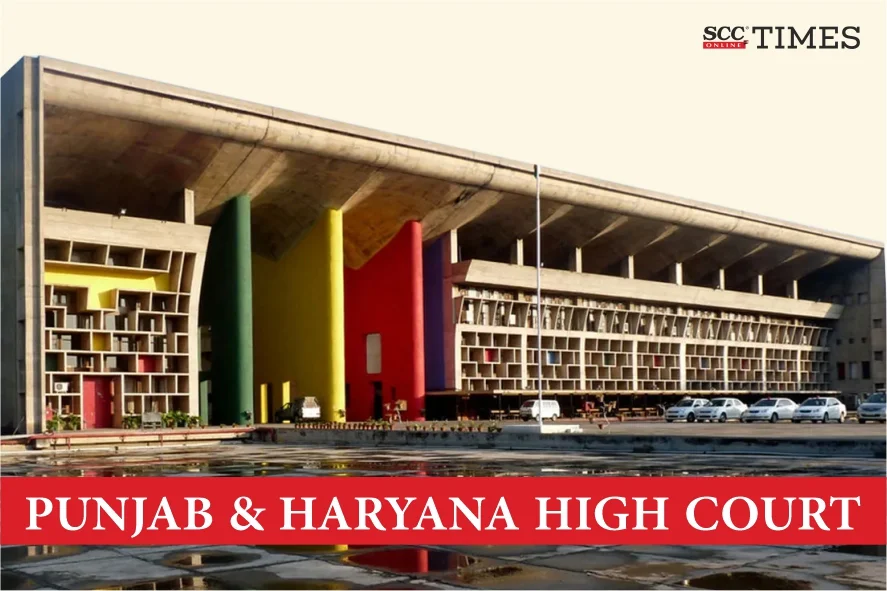Punjab and Haryana High Court: In a writ petition filed by an inspector seeking quashing of the order whereby he was punished with a reduction in rank in a disciplinary proceeding, wherein he had already been exonerated 7 years ago, a Single Judge Bench of Jagmohan Bansal, J., allowed the petition, holding that the State was bound to exercise power of review within reasonable period of limitation, which in the instant case could not be more than 3 years.
Background
The petitioner joined the Haryana Police Force as a Constable in 1988. In 2017, a charge sheet was issued against him in a disciplinary inquiry, but in the Inquiry Officer’s report, he was exonerated. Eventually, the Jurisdictional Superintendent of Police, i.e., Disciplinary Authority, also agreed with the inquiry report and received confirmation of the same from higher authorities.
In 2024, the Director General of Police (‘DGP’) directed the Inspector General of Police (‘IGP’) to review the exoneration order. The jurisdictional IGP issued a show cause notice to the petitioner, who, in his reply, raised a question of limitation. Nevertheless, the State ordered the petitioner’s rank to be reduced from Inspector to Sub-Inspector. The petitioner was promoted as an Inspector in 2023, and he is going to retire in 2026.
Aggrieved, he filed the present petition.
The State contended that there was another delinquent in the departmental proceedings along with the petitioner. He was awarded the punishment of a reduction of pension to the extent of 5%, and his case reached the Government. At that stage, it was considered that the petitioner’s case should also be reconsidered, thus, the DGP directed the IGFP to review the exoneration order under Rule 16.28 of the Punjab Police Rules, 1934 (‘the Rules’).
Analysis
Upon perusal of Rule 16.28, the Court noted that the IGP/Deputy Inspector General(‘DIG’) and Senior Superintendent of Police (‘SSP’) may call a record of awards made by their subordinates. These officers may confirm, enhance, modify, or annul the order passed by their subordinates. Before passing an order of confirmation, enhancement, modification, or annulment, they may conduct further investigation or direct it to be conducted. The higher authority is competent to annul the order passed by his subordinate, and before annulling the same, he may conduct further investigation or direct it to be conducted, however, the higher authority has no right to annul the order passed by his subordinate and then order a de novo departmental enquiry.
The Court stated that no limitation period has been prescribed under Rule 16.28 of the Rules, however, it was a settled proposition of law that where no limitation period is prescribed, authorities are bound to act within a reasonable period. The reasonable period depends upon the facts and circumstances of each case. There is no hard and fast or straitjacket formula. In this regard, the Court referred to S.B. Gurbaksh Singh v. Union of India (1976) 2 SCC 181, wherein the Court held that where no time limit has been prescribed to excise suo motu power of revision, the Revisionary Authority is bound to initiate the proceeding within a reasonable time. So, any unreasonable delay in exercising may affect its validity.
The Court also referred to Sharda Devi v. State of Bihar (2003) 3 SCC 128, wherein the Supreme Court, held that where no period of limitation for exercise of any statutory power is prescribed, the power should be exercised within a reasonable period, which depends upon the facts and circumstances of each case.
In the case in hand, the Court noted that the Inquiry Officer submitted his report on 17-08-2017, wherein the petitioner was exonerated. The Disciplinary Authority agreed with the inquiry report and sent its report to higher authorities confirming exoneration of the petitioner. This proceeding concluded on 21-08-2017. The DGP, on 26-09-2024, directed the IGP to review the order dated 21-08-2017, and the IGP issued a show cause notice on 19-09-2024, i.e., more than 7 years from the date of the Disciplinary Authority’s order.
Noting the aforesaid, the Court held that by no stretch of limitation, the said period could be considered reasonable in the facts and circumstances of the instant petition. There was no change in the facts and circumstances of the case, and there was no allegation that disciplinary proceedings were dropped on account of fraud or malpractice committed by the petitioner. The Court further held that, in the absence of these circumstances, the State was bound to exercise the power of review within a reasonable period of limitation, which in the instant case could not be more than 3 years. The Court further noted that the petitioner was going to retire in 2026, and he had been working as an Inspector since 2023, thus, demotion would adversely affect his career.
Holding this, the Court allowed the petition and set aside the impugned demotion order.
[Inspector Prithvi Singh v. State of Haryana, 2025 SCC OnLine P&H 2403, decided on 08-05-2025]
Advocates who appeared in this case:
For the petitioner: Senior Advocate R.K. Malik and Advocate Ankur Sheoran
For the respondent: Raman Sharma, Addl. A.G., Haryana


